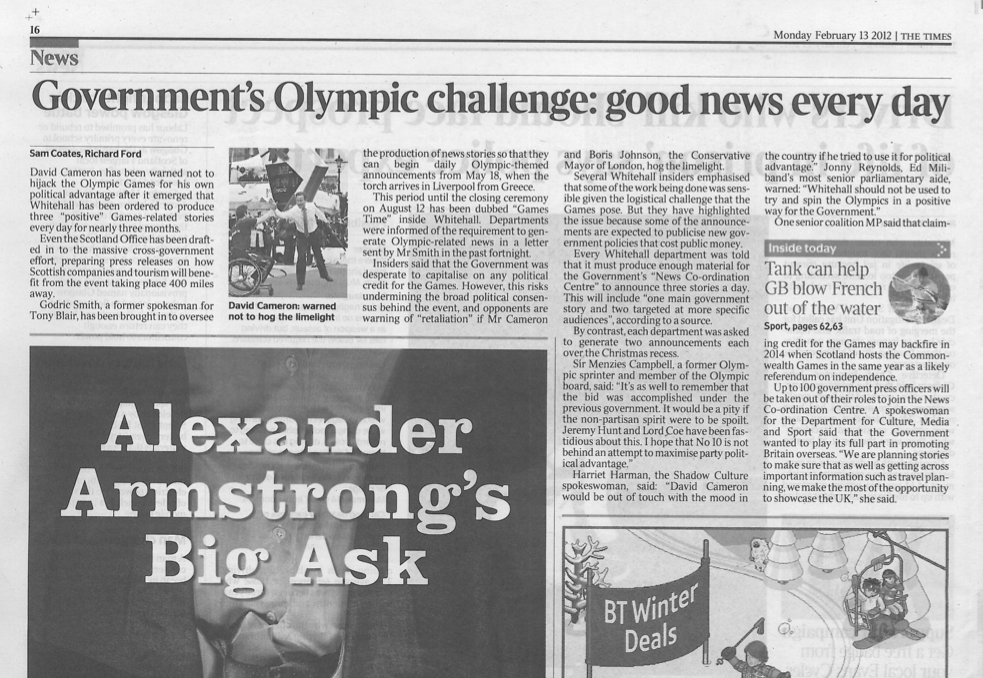This morning a Social Media Week, London event looking at the social media around the Olympic games called “#socialympics” was stirring a lot of interest on twitter relating to discussions of big data, history of new media and mega events and the revolutionary effects of social media and production/distribution of the games. Speakers include (from the site):
Our panel will feature Chris Tomlinson, record-breaking British long jumper and double Olympian; Gordon Lott, Head of London 2012 Partnership and Group Sponsorship at Lloyds TSB, the London Games’ first domestic sponsor; Hugh Chambers, Chief Commercial Officer of the British Olympic Association; Paul Kelso, Chief Sports Reporter of the Daily Telegraph; Alex Miller, CEO of Engine’s social media agency Jam, Engine’s social media and mobile agency; with myself in the chair. (3)
All individuals who have an invested interest in the Olympics and/or their brand sponsorship.
Abi Sawyer drew me the this tweet made by @SynergyCarsten:
This suggests that social media (or web 2.0) was not present during the Athens 2004 games. This claim is hard to believe, seeing that it only takes a quick google search to find blog posts still available around the time from independent (or citizen) journalists which makes me think that there is a lot of misinformation being spread about what really happened on the web during the last 12 years of games.
I’ve extracted the data from twitter (using @mhawksey‘s archive spreadsheet too) of what was said at the event and how and who was sharing it – I think it would be benefitial going through the comments to see what is being promoted as an authoritative opinion of social media and the Olympic Games. Can you help me?
The data is available here.

